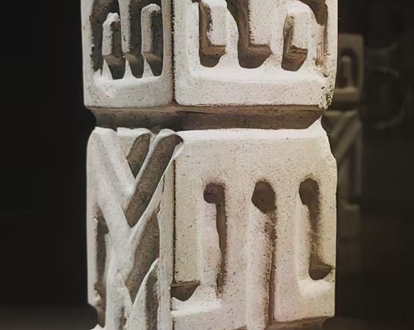Relational and Social Constructionist Consortium of Ecuador (IRYSE)
Diego Tapia Figueroa, Ph.D. and Maritza Crespo Balderrama, M.A
Probably, the richest literature in terms of consistency, contributions, and possibilities on these topics can be found in the philosophical, epistemological, broad, deep, and inspiring research proposals, theory and practice, relational ethics, and reflective pragmatics developed by Dora Fried Schnitman, Ph.D. and Harlene Anderson, Ph.D. Both of them, are among our wisest, most generous, intelligent, and fun teachers.
And, of course, in the numerous publications of the TAOS INSTITUTE, with the transcendental contributions (admired teachers and friends) of Kenneth Gergen, Ph.D., Sheila McNamee, Ph.D., John Shotter, Ph.D., Silvia London, M.A., Marilene Grandesso, Ph.D. and a long list of Taos associates, who work on the 5 continents to contribute in different ways to the construction of a world with common well-being.
We have had some feedback – internally and directly- on our last 2 articles about leadership, opinions, and suggestions from certain professionals in this society and country, who tell us the following, which we share with their prior authorization. 5 of these feedbacks:
“Leadership must be differentiated from coaching and managing.”
We agree. Especially when these are times of easy new age self-help formulas, of managerial perspectives; as well as modernist management styles, based on hierarchical enthronement and the maintenance of power and privileges.
How is criticism that produces reactivity different from criticism that proposes other leadership options?
Perhaps, reactivity is the responsibility of whoever chooses that response without removing co-responsibility in how ideas are proposed. We carry out the criticism that proposes new leadership possibilities with arguments, also guided by the experience of decades of work in these fields and nourished by the joint learning carried out with the people and professionals we mentioned at the beginning of this short text. They are tentative proposals that, if they are of any use and are useful, will have to do with how they respond to the current needs of each reality and local culture.
Is it real or is it a utopia to think that those accustomed to hierarchical, authoritarian, traditional leadership accept these new proposals for generative, collaborative, assertive, and transformative leadership?
The responsibility of opening a dialogue that generates transformations in leadership styles is shared between those who have these responsibilities and their teams and collaborators. It is a joint co-construction.
And, that one chooses to decide to move from a modernist, traditional, essentialist, hierarchical, and often oppressive place, to another place, in which there are co-responsible parties; choosing to work with others, from a relational ethic, a radical presence and a genuine and authentic commitment to building possible futures, deciding to choose these new paths of joint construction of different meanings, is what we consider opens the possibilities of acceptance, creativity and innovation, which produce transformative dialogues, capable of promoting what does work, positive exceptions, focusing on resources, spreading trust and hope, freedom and joy.
Successful managers should talk about leadership, for example, because they know what means to lead teams, lead projects, and assume complex and challenging responsibilities. It is one thing to give poetic opinions about leadership and another to have to respond to the demands of large companies, manage high budgets, and command interdisciplinary teams with very complicated people.
It’s a perspective. We have others. Where is it written that the monopoly of the word must be held by certain elected officials? Who says that there are privileged beings who own “THE TRUTH?” Seriously: there is a “truth”, valid for all people, all the time, and in any culture? What seems to us, -nothing that is not obvious- is that behind every discourse there are interests; it is naive to think that leadership is neutral, ascetic, and without intention, objectives, political positions -conscious or not- generators of lifestyles and communication and relational styles, etc.
What we propose is a reflective dialogue on the consistent, congruent, and ethical philosophies and practices of these different types of leaderships; we make a respectful invitation to question ourselves about how we relate to the other, the different, the diverse; about how we accept or do not accept diversity; about what we can contribute in a different way to build the type of relationships that we would like to experience, in all contexts, be they work, personal, family, or relationship networks.
And, if proposing questions from the paradigm of complexity, accepting uncertainty seems like poetic naivety, we see it for what it is, an opinion, like that there are others; it is not a single or indisputable truth or a dogma that we must abide by like the subalterns domesticated by an abusive culture, who like to call the “team,” who maintain their abusive, violent and often corrupt power and privileges.
How can we share these perspectives and positions in contexts in which these ideas and proposals appear as a threat to the status quo?
We respond to you, with an invitation to read this text of ours, there you will find some possibilities, which we trust will provide you and be useful:
Suggested bibliography:
Dora Fried Schnitman: https://iryse.org/perspectiva-generativa-en-terapia-de-momentos-generativos-a-una-pragmatica-reflexiva-de-dora-fried-schnitman/
Dora Fried Schnitman: https://iryse.org/serie-aportes-y-autores-significativos-en-el-construccionismo-relacional-construccionismo-social/
Dora Fried Schnitman: https://iryse.org/serie-aportes-y-autores-significativos-en-el-construccionismo-relacional-construccionismo-social-2/
Construccionismo social-relacional. Construcción conjunta, significativa y creativa de procesos de transformación en el proceso terapéutico, en la formación de profesionales y en la supervisión clínica. (19/20): https://iryse.org/construccionismo-social-relacional-construccion-conjunta-significativa-y-creativa-de-procesos-de-transformacion-en-el-proceso-terapeutico-en-la-formacion-de-profesionales-y-en-la-supervision-clinic-19/20
Harlene Anderson: https://iryse.org/serie-aportes-y-autores-significativos-en-el-construccionismo-relacional-construccionismo-social-5/
Harlene Anderson: https://iryse.org/serie-aportes-y-autores-significativos-en-el-construccionismo-relacional-construccionismo-social-6/
Kenneth Gergen: https://iryse.org/serie-aportes-y-autores-significativos-en-el-socioconstruccionismo/
Kenneth Gergen: https://iryse.org/serie-aportes-y-autores-significativos-en-el-socioconstruccionismo-2/
Sheila McNamee: https://iryse.org/serie-aportes-y-autores-significativos-en-el-socioconstruccionismo-construccionismo-social-2/
Sheila McNamee: https://iryse.org/serie-aportes-y-autores-significativos-en-el-socioconstruccionismo-construccionismo-social-3/
John Shotter: https://iryse.org/serie-aportes-y-autores-significativos-en-el-socioconstruccionismo-construccionismo-social/
Silvia London: https://iryse.org/serie-aportes-y-autores-significativos-en-el-construccionismo-relacional-construccionismo-social-7-2/
Marilene Grandesso: https://iryse.org/serie-aportes-y-autores-significativos-en-el-construccionismo-relacional-construccionismo-social-9/
Marilene Grandesso: https://iryse.org/serie-aportes-y-autores-significativos-en-el-construccionismo-relacional-construccionismo-social-10/
Investigación Relacional Dialógica (I): https://iryse.org/investigacion-relacional-dialogica-i/
Investigación Relacional Dialógica (II): https://iryse.org/investigacion-relacional-dialogica-ii/
Investigación Relacional Dialógica (III): https://iryse.org/investigacion-relacional-dialogica-iii/

English translation by Bruno Tapia Naranjo



